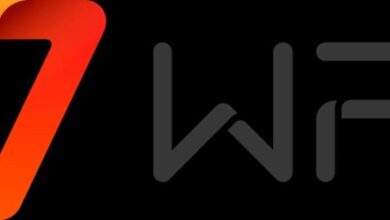How Job Search AI Helps You Hire Gen Z Who Don’t Want Full-Time Jobs
Generation Z is rewriting work rules. They do not trust traditional employment. They prefer projects over positions. They value flexibility over stability.
By 2027, half of developed world workers will be part of the gig economy. Gen Z makes up 30% of gig labor right now. For companies trying to hire them, the old playbook fails.
“Young people are driven to take control over their own work life balance,” explains Reid Litman at Ogilvy. “They don’t trust the old system.” Gen Z watched their parents get laid off despite decades of loyalty. Traditional career promises ring hollow.
The European numbers tell the story. Over 500 digital labor platforms employ 28 million people in the EU. By 2025, this grows to 43 million. The gig economy in Europe grows at 17% annually. Countries with favorable gig policies see 30% more young workers in non-traditional employment.
Job search AI technology changes how companies find this generation. The global market hit $661.56 million in 2023. It will reach $1.12 billion by 2030. This tech enables new hiring approaches matching Gen Z expectations.
Modern job search AI tools evaluate project portfolios and gig work experience. The currency Gen Z trades in. Not traditional resumes. About 87% of companies now use AI-driven software. They reduce hiring costs by 30% per hire.
For Gen Z candidates, these platforms help find project-based opportunities traditional job boards miss. About 53% of new hires used generative AI in their job search in early 2024. Up from 25% six months earlier.
But there is tension. About 66% of job seekers avoid jobs using AI in hiring decisions. And 79% want transparency when AI is used. Gen Z demands understanding of how algorithms assess them.
Why an AI Career Coach Matches Gen Z Thinking
Flexibility tops the list. About 77% of gig workers cite this as their primary motivation. For Gen Z, flexibility means control. They watched economic instability make “job security” meaningless. They concluded diversified income beats single employers.
Economics matter too. About 60% of freelancers earn more than in traditional jobs. Gen Z recognizes project-based work commands premium rates. No entry-level salary ceiling.
Work-life integration drives decisions. About 45% of gig workers report improved balance. Gen Z prioritizes mental health and personal time in ways previous generations could not afford to.
Skill development shapes choices. By 2025, 60% of freelancers will use AI-driven platforms for learning. Gen Z views continuous learning as essential. Gig work provides diverse experiences traditional careers often do not.
An AI career coach approach resonates because it mirrors this mindset. These systems provide ongoing development recommendations. Not one-time evaluations. They map capabilities to opportunities. They show clear paths from skills to projects.
AI career coach platforms help Gen Z navigate portfolio careers. They suggest which capabilities to build next. They identify emerging opportunities matching current skills. They frame work in terms of growth potential.
How AI Simulator Tools Let Candidates Prove Themselves
To hire Gen Z successfully, companies must restructure entry-level roles.
Start with project-based onboarding. Create discrete projects with clear deliverables and timelines. Gen Z wants to contribute immediately.
Frame work as portfolio-building opportunities. About 85% of employers use skills-based hiring now. Gen Z thinks in demonstrated capabilities. Show them what they add to their portfolio.
Consider flexible engagement models. Research shows 72% of gig workers combine project work with main professions. Fighting this reality is futile. Designing for it is strategic.
Give meaningful autonomy early. About 75% of businesses use gig workers to address talent shortages. Project-based workers expect ownership. Provide support. Not micromanagement.
AI simulator technology makes this possible at scale. These tools evaluate demonstrated capabilities through challenges and simulations. Not credential filtering.
An AI simulator creates job-based cases candidates solve. They prove capability before applying. This feels natural to Gen Z. Like the gig economy they know. Prove skill. Build reputation. Access opportunities.
Platforms using this approach break work into 15-20 minute steps. Candidates engage with company-aligned cases. Each milestone offers multiple challenges. Employers get deep profiles showing how candidates noticed problems, structured solutions, and made decisions.
Why Online Work Experience Replaces Traditional Resumes
Skills validation systems matter most. Tools that evaluate capabilities through portfolio analysis. Not just credentials.
Transparent algorithms come next. About 79% of candidates want transparency when AI is used. Gen Z particularly demands algorithmic accountability.
Cultural fit assessment helps both parties. Job-based challenges assess values alignment and working style. This determines fit before commitment.
Continuous feedback loops meet expectations. Gen Z expects ongoing growth opportunities.
Bias mitigation is table stakes. About 68% of recruiters believe AI removes hiring biases. For Gen Z, diversity and inclusion are requirements.
Online work experience becomes the new currency in this environment. Gen Z builds careers through demonstrated work. Not claimed credentials.
Online work experience shows what candidates actually did. Not what they say they can do. Platforms that capture this resonate with a generation that trusts proof over promises.
Specific roles are emerging around this shift. AI talent matchmaking specialists connect project talent with opportunities. Skills taxonomy developers map capabilities to needs. Challenge designers create the assessments platforms use. Portfolio analytics engineers build systems evaluating actual work.
These roles exist because online work experience matters more than traditional qualifications now.
Europe’s regulatory approach impacts this evolution. Governments introduce measures giving gig workers minimum wages and paid leave. This makes project work sustainable as primary income. The EU framework creates transparency and worker rights standards.
Countries implementing favorable policies show better outcomes. A 30% increase in young worker participation. Lower unemployment rates by 2.5%.
Traditional compensation models do not resonate with Gen Z either. Highly skilled freelancers earn $50-$150 hourly on platforms. Organizations offering entry-level salaries to Gen Z with equivalent skills will lose talent.
Offer flexible benefits. About 52% of gig workers lack healthcare and pensions. This creates opportunity for differentiation.
The trajectory is clear. By 2025, 40% of companies plan to expand gig worker use. Organizations treating this as temporary will struggle for Gen Z talent.
The global gig economy reached $455 billion in 2025. It will exceed $1.8 trillion by 2032. In Europe, 43 million people will participate by 2025.
Companies adapting their hiring to accommodate project-based engagement will access extraordinary talent. Those clinging to traditional models cannot compete.
Gen Z does not believe in full-time jobs as previous generations defined them. The question is whether you will adapt quickly enough.



